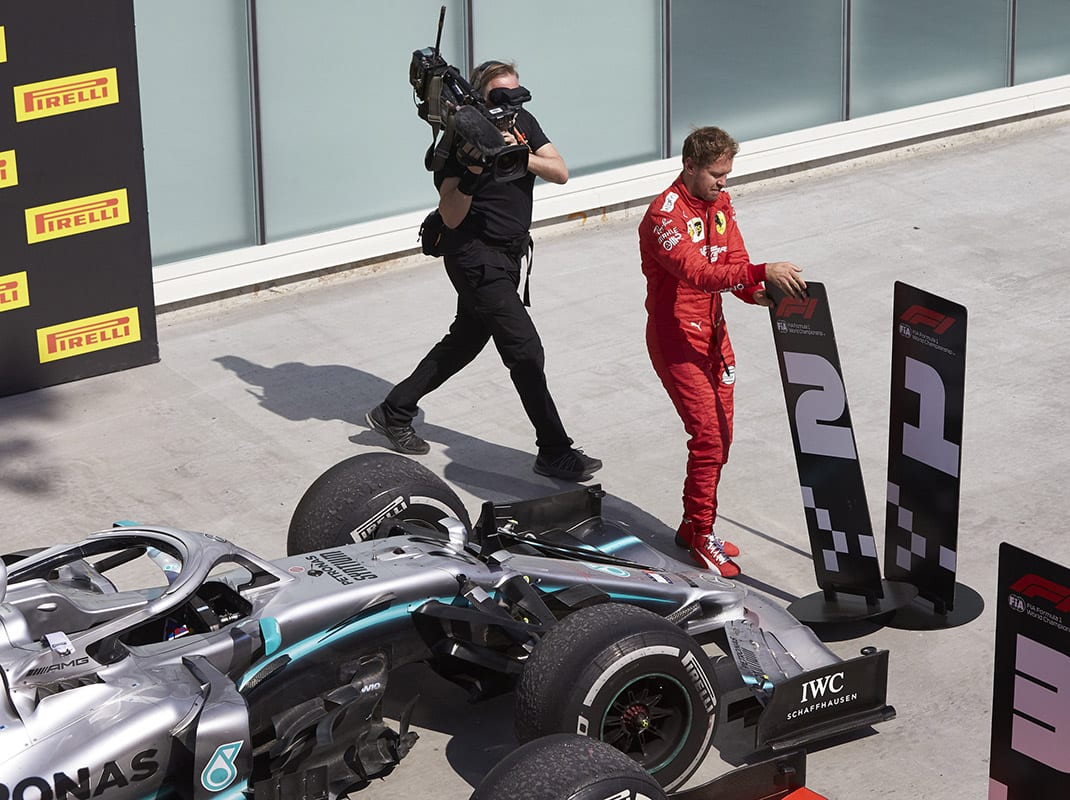The Formula One race stewards have come under fire for making some seemingly controversial decisions this season.
One of the most debated incidents was when Sebastian Vettel crossed the finish line first at the Canadian Grand Prix, but he was demoted to second place after the stewards gave him a five-second time penalty for an “unsafe return to the race track.” Vettel had cut across the grass and then sliced back onto the track in front of Lewis Hamilton, who was declared the winner after the penalty was applied.
Some fans were so enraged they threatened physical harm to Emanuele Pirro, the driver representative on the panel of four stewards for that weekend.
The stewards were doing things exactly according to “the book,” which states the three primary possible penalties for an “unsafe return to the race track” are a five- or 10-second time penalty, or a drive through the pits penalty.
Controversy on such rulings is nothing new.
“There has been a lot of talk about stewarding for the last 20 years, 30 years, 40 years,” said Garry Connelly, one of the FIA’s senior stewards. “I think that no matter what decision we take, half the fans will always say we were right and half the fans will always say we were wrong. Part of it is the communication problem — we need to communicate better the reasons for our decisions, and we are constantly trying to do that. I believe that we’ve been very consistent in recent years.”
The Stewards
The FIA has a standard system for all F-1 races that consists of a panel of four stewards. There is the chairman of the stewards, one of four that rotate through the season. The second person is one drawn from a pool of experienced stewards. Next, there is a steward from the country hosting the event, and, finally, there is a former or current race car driver.
At this year’s Canadian Grand Prix, the chairman of the stewards was Gerd Ennser, a lawyer, former racer and F-1 steward since 2010 — and, incidentally, a German who did not show any favoritism to fellow countryman Vettel. The other stewards were Mathieu Remmerie, a graduate of the global pathway for FIA stewards’ program; Mike Kaerne, a Canadian with many years of being a steward in North American racing; and Pirro, a five-time Le Mans winner.
The other three chairmen of the stewards are American Tim Mayer, Australian Garry Connelly and Singapore’s Nish Shetty.
Mayer, son of the late Teddy Mayer who was involved with McLaren for many years, organized Indy car races internationally from 1992 to ’98. He was also CART’s senior VP for racing operations and the COO of IMSA. Currently, he is the U.S. FIA Delegate responsible for world championship events in the U.S.
Connelly has been involved in motorsports since the late 1960s. A longtime rally competitor, he was responsible for bringing the World Rally Championship to Australia in 1988. He has been an FIA steward and FIA observer since 1989, covering the WRC, World Touring Car Championship and F-1.
Shetty heads the Clifford Chance Litigation & Dispute Resolution team in Asia. He is also a Judge of Appeal of the FIA International Court of Appeal in Paris; Chairman of the Disciplinary Commission of the Singapore Motorsports Ass’n; and a member of the International Council for Commercial Arbitration.
Among those who represent the “second” steward position are: Remmerie; Felix Holter, a member of the FIA’s International Stewards Panel, and a steward in the World Touring Car Championship and in Germany’s DTM and Formula 4 series; and Paolo Longoni, who has nearly 30 year’s racing experience and is a steward for the Porsche Supercup, Ferrari Challenge and F-2 series.
The core panel of drivers includes 1985 Indy 500 victor Danny Sullivan, Pirro, Derek Warwick, Tom Kristensen and Mika Salo. Other drivers who sometimes take up the role include Yannick Dalmas, Vitantonio Liuzzi and world champions Alan Jones and Nigel Mansell.
While they get their travel expenses, the stewards are not paid and work on a voluntary basis.
Working separately but together with the stewards in the control tower are the FIA’s new race director Michael Masi and his group. Masi took over the post after F-1 veteran Charlie Whiting died just before the first race of the season. When Masi or one of his team spots a possible infraction by a driver, they investigate it further. They then decide if it should be forwarded to the stewards for further action.
The stewards, however, can also decide independently if they want to review an incident.
Those working in the control tower have access to far more data and TV footage than seen by the fans, or even the media at the track. And that’s why sometimes what is seen on TV by the fans doesn’t correlate to a stewards’ decision.
Click below to keep reading.
